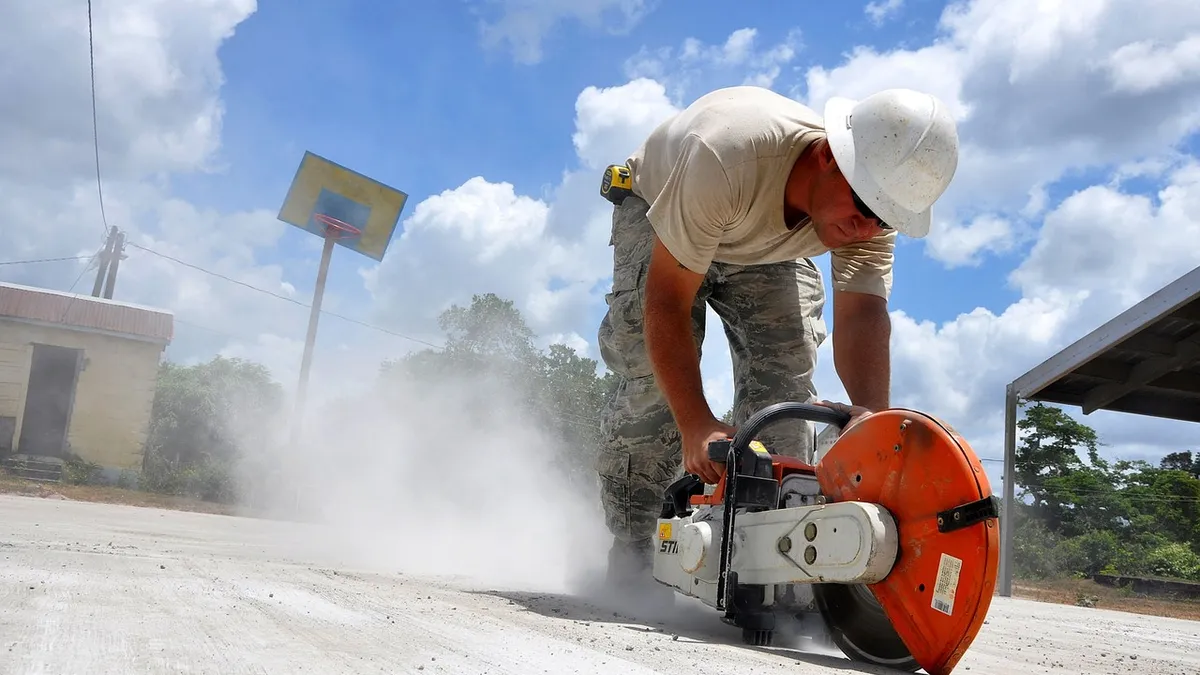Dive Brief:
-
Although the effective date of OSHA's revised silica rule was Sept. 23, the agency said it will not begin issuing fines and citations for another 30 days to companies that have taken steps toward meeting the new reguation's requirements, Engineering News-Record reported.
-
Advocates and critics of the rule — which reduces acceptable exposure limits to airborne silica and requires a written plan, training and, in some cases, medical monitoring to manage the dust — said the extra time will help employers comply. However, the Associated General Contractors of America said OSHA's employer assistance program is limited in scope.
-
OSHA says the new rule will prevent in excess of 900 cases of silicosis annually. Industry groups have filed a legal challenge against the rule and are awaiting a decision from the U.S. Court of Appeals for the District of Columbia.
Dive Insight:
In the last year few years, construction industry groups have pushed back, with varying degrees of success, against regulations they view as too burdensome to implement. Unlike the silica rule, which the Trump administration has defended, they have been helped along by the White House's anti-regulation stance.
The "persuader" rule addition to the Labor-Management Reporting and Disclosure Act would have required companies to make public any communication, including conversations with legal counsel, about employee unionization efforts. A U.S. District Court judge in Texas permanently blocked the rule in November 2016, and now the Department of Labor is considering eliminating it altogether. The DOL cited legal hurdles, the potential effect on businesses and a scarcity of enforcement resources as reasons for repeal.
In late August, a different federal judge in Texas ruled the DOL's new overtime rule was invalid because the department did not have the authority to issue anything that would cast aside the Fair Labor Standards Act's duties tests.
Another Obama-era regulation that recently came under fire was the Fair Pay and Safe Workplaces Act, also called the "blacklisting rule." That regulation would have required contractors to reveal past DOL violations prior to entering into a federal contract. Trump signed a repeal of the rule in March.













